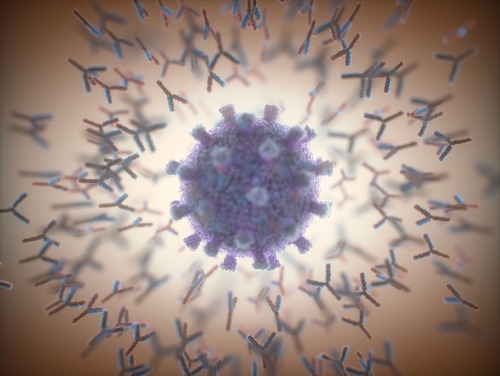
According to a new study from the National Cancer Institute (NCI), at least a few months of protection may be granted against reinfection to those with SARS-CoV-2.
As part of the National Institutes of Health, NCI worked with healthcare data analytics companies HealthVerity and Aetion, Inc. and five commercial laboratories to create this report, which has major implications for public health, economic, and school reopenings, along with the prioritization of vaccine distribution. Though focused on cancer research primarily, the NCI was chosen by Congress to utilize its serological expertise to address the global COVID-19 pandemic. Their findings were published in JAMA Internal Medicine.
“The data from this study suggest that people who have a positive result from a commercial antibody test appear to have substantial immunity to SARS-CoV-2, which means they may be at lower risk for future infection,” Dr. Lynne Penberthy, associate director of NCI’s Surveillance Research Program and study leader, said. “Additional research is needed to understand how long this protection lasts, who may have limited protection, and how patient characteristics, such as comorbid conditions, may impact protection. We are nevertheless encouraged by this early finding.”
By aggregating and analyzing the patient information and antibody test results of more than 3 million people between Jan. 1 and Aug. 23, 2020, the partners determined that nearly 12 percent of the tests were antibody positive, while the remaining tests were negative. Less than 1 percent were inconclusive. Subsequent reviews of nucleic acid amplification tests (NAATs) for SARS-CoV-2 were pursued to determine any new infections at multiple time intervals.
During each interval, between 3 and 4 percent of seronegative patients had positive NAAT tests, but seropositive individuals faced declining NAAT test positivity rates over time. Tests results from 90 or more days after the initial antibody test showed only around 0.3 percent of those originally found to be seropositive had a positive NAAT result. This represented about one-tenth the rate of those who had been seronegative.
The authors concluded that these results show antibodies against SARS-CoV-2 can likely provide additional protection from future infection. Still, they admitted the report had limitations: the true duration of protection remains unknown, researchers did not follow up to see why people who had tested antibody positive also had PCR tests and, given that this was real-world data interpretation, biases may have been involved that would not have appeared in a clinical trial.




